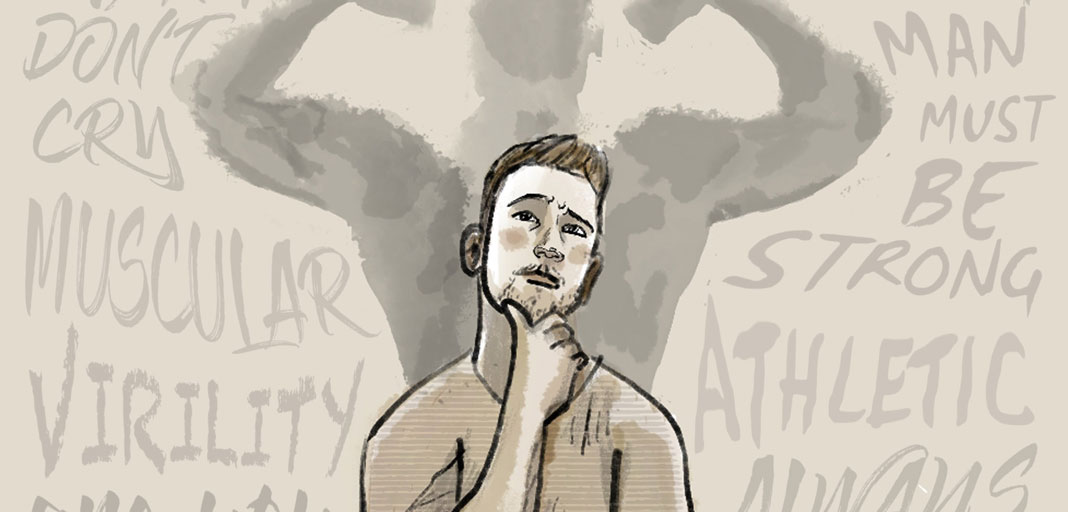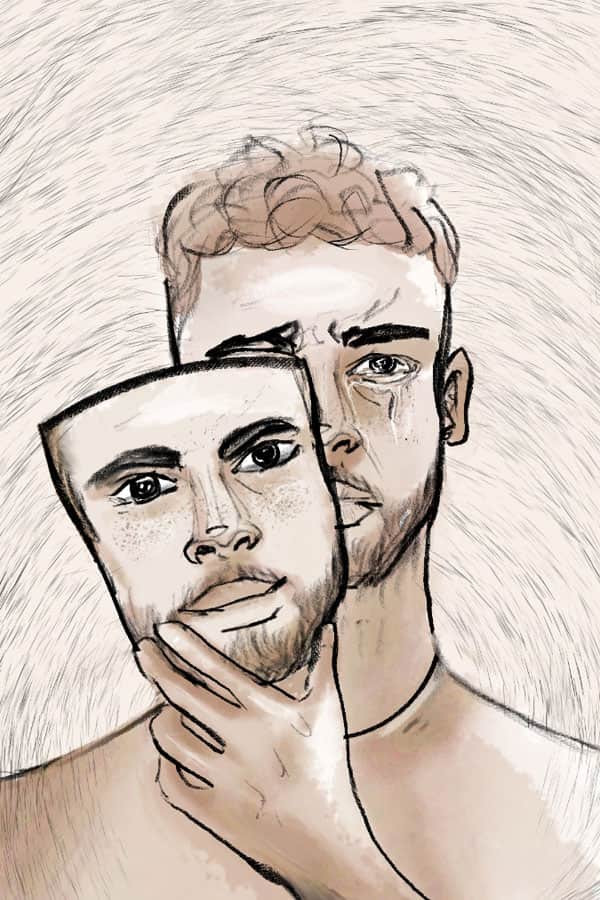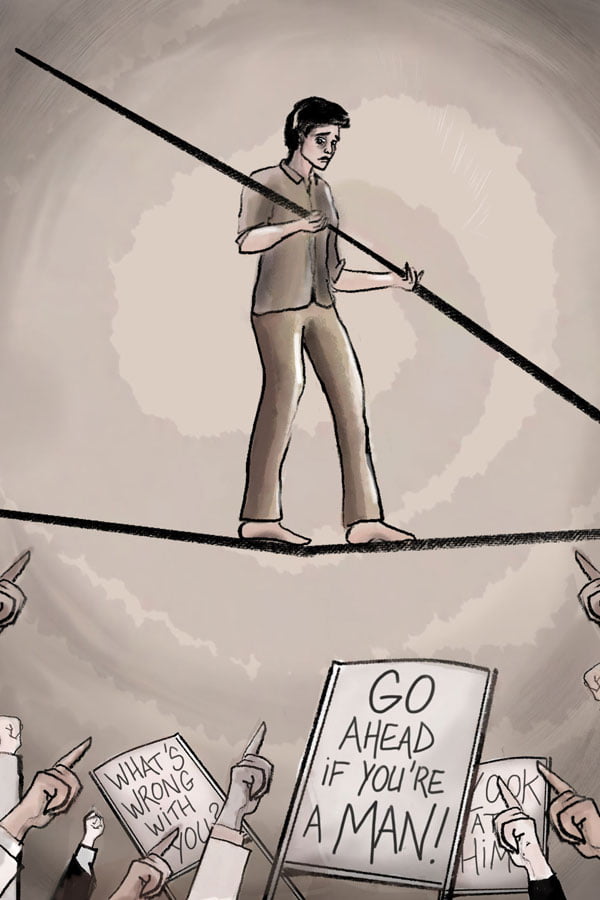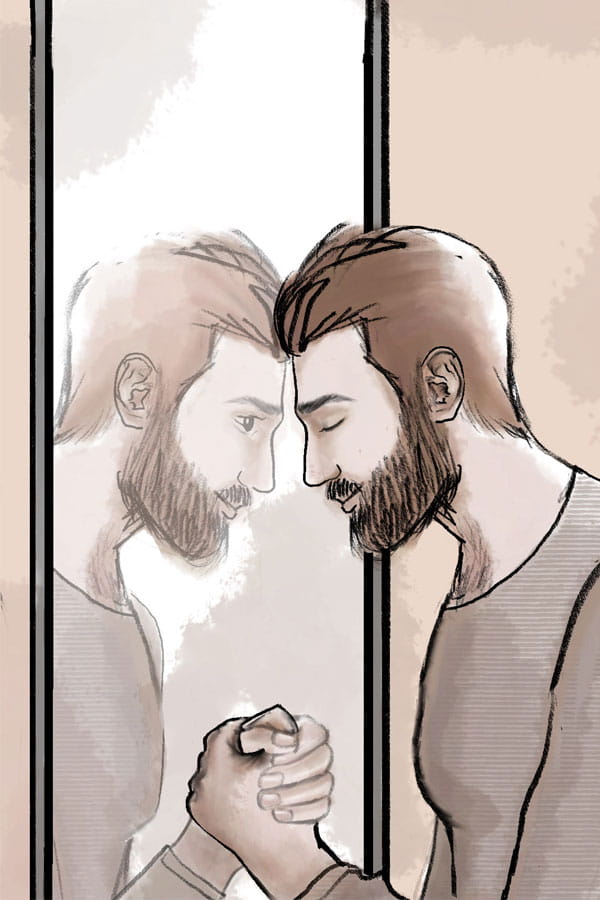Toxic masculinity is not only harmful to women. This type of behavior is detrimental to the mental and physical health of the perpetrator himself. False models of masculinity lead to violence and affects society as a whole.
Toxic masculinity. I’ve been hearing a lot about it lately. The expression has been around for several decades, but has emerged again in recent years, especially with the #MeToo movement.
Toxic masculinity can be a tough topic to talk about. How could masculinity – and femininity for that matter – be toxic? Toxic to whom and in what sense? And by the way, what exactly does masculinity mean? Is “toxic masculinity” another academic concept to satisfy “social justice warriors”? Or is there a reality behind the words?
Through this post, I would like to make you realize that there is a widespread model of masculinity in today’s society that is proving to be harmful. This model can be found everywhere in movies, in the media, at school, in the workplace, in sports.
Acknowledging this reality does not necessarily mean questioning the idea that there is a masculine and feminine identity, or claiming that men should lose their masculinity. On the contrary, it means rethinking how we conceive of masculinity, replacing what we believe to be masculine attributes with a more adult, responsible and healthy idea of masculinity.
Many men share their experience on the subject and explain how they have managed to break free from the mould that society has imposed on them.
Everyone has their own story and their own vision of things. But most agree that the modern perception of masculinity deserves to be reinvented.
I asked Omar Hachem, a life coach writer in London, Ontario, Canada, to tell me more about his experience with toxic masculinity.
What does “toxic masculinity” mean and why is it so important for you to talk about it?

Life Coach Writer
@omarhachemsays
O.H.: In a nutshell, toxic masculinity is the false notion that you need to engage in emotional suppression as a way of preserving your gender identity.
Two years ago, I became a writer with a mission to crush toxic masculinity while empowering people to embrace their vulnerability.
Man or woman, no one should ever have to suffer in silence.
Is toxic masculinity a real issue? What’s wrong with repressing emotions? What are the consequences?
O.H.: Toxic masculinity is a real issue.
Depriving yourself of feeling raw, human emotion isn’t healthy, not to mention it prevents you from building real, genuine, and long-lasting bonds with people.
Where does it come from?
O.H.: Men are taught to be tough, to never show signs of weakness, and to refrain from speaking up about anything pertaining to their emotions.
Because in doing so, you’re now showing vulnerability—and vulnerability is what is perceived as a weakness.
Why is vulnerability perceived as a weakness?
O.H.: Men are afraid to open themselves up to the idea of vulnerability, because in doing so, there is the potential they will get judged or shamed by the people around them. Others fear for their reputation or social status being tarnished.
So basically, toxic masculinity is based on fear of being judged?
O.H.: Definitely. What has always fascinated me about toxic masculinity is that there is usually a common theme around the fear of being unaccepted by the communities or people men have grown accustomed to.
How to overcome the fear of being judged?
O.H.: When you think about it, those who love you will never judge you.
“Those who love you will never judge you.“
Now, read that again and let it sink in for a moment. If someone who claims to love you is judging you for talking about your feelings, what does that tell you about them? It tells me they have a crooked view about what it means to be a man. It also tells me they must have their own underlying insecurities or inner demons they haven’t confronted. Because we don’t judge people who have been where we’ve been.
How do you teach others to stop judging?
O.H.: Experience is the best teacher in life. When you’re educated on matters that have personally affected you at one point, you’re less likely to be judgemental towards those who find themselves in similar situations. Instead, we empathize. We show compassion. We listen. And we understand to the best of our abilities.
Can you tell me about your own experience of toxic masculinity?
O.H.: For the longest time, I struggled in expressing myself freely because I was told that it wasn’t okay. I was told that being sensitive wasn’t okay. I was made to believe that being sensitive was a negative trait and that talking about your feelings are discussions that should never take place.
Many years ago, I was part of an 8-group social circle mainly compromised of white alpha males. And not the good kind of alpha males.
“An alpha male (…) is a man who plays a dominant role in his environment.“
An alpha male, in this particular instance, is a man who plays a dominant role in his environment. He is aware of the level of control he has over those around him. His aim is to lead the pack while continuously fighting for his place in order to maintain a high social rank. He never talks about his emotions because you’re considered a woman if you do. He is the one that men have been conditioned to think they need to be just like, or the one that women often lust over. He says and does as he pleases while using domination and intimidation to get what he wants.
This was a group of men who were very different from me and the way I was brought up—but whom I gravitated towards. Prior to meeting them, I was in an extremely vulnerable place. I hadn’t established a strong sense of worth or reached the point where I could say I genuinely loved myself, fully. Because I didn’t. I was far from the term, “self-love.” There were cracks in my life that I was still trying to fill and repair. A heartbreak that I was still moving passed. Social isolation that I was still working through. So naturally, when the universe brought these people into my life, I latched onto them. Because I didn’t know any better. I didn’t know where I belonged.
Being with and around them gave me exposure to environments that were out of character for me. Not to mention it pulled me away from my family, my faith, and myself. I spent almost every waking day with them. I grew quite familiar with the bar/party scene.
I watched as they would work their magic on women as if they were objects to be owned, used, and thrown away. Times when I would speak my mind or express how I felt, I got ridiculed and alienated for it. They called me every name in the book. I couldn’t practice my religion in peace without being told it was stupid. I couldn’t share pieces of my culture or my life without them using my differences as a way to isolate and belittle me.
The conversations came without substance. When my head hit the pillow at night, I would go into a cycle of questioning my purpose and carry the blame for their inability to accept or love me. Holding on to these relationships became toxic to the point that I was given an ultimatum between them or my religion. It became clear they didn’t like my lifestyle. And in some strange way, they felt entitled to my rights to freedom.
My religion couldn’t have been the real issue, because I never talked about it. They made it a problem when they determined they couldn’t mould me into the person they wanted me to be. A person that would no longer resemble me or my values. It’s the resistance they didn’t like, because they couldn’t control that aspect of my life. It bothered them.
That’s when a revelation came to me. That’s when I finally realized I didn’t need them as much as I convinced myself I did. As much as it pained me, I knew I had to walk away from them. But before I did, I made sure my thoughts and feelings were known. I made sure they knew how wrong they were to treat someone like me the way they did. I held nothing back.
It’s interesting, because from that point forward, I started to elevate in every part of my life, specifically in business. And as my business started to grow, they started to ask about me, which eventually led to them extending their hand and showing interest. Not because they cared about me, but because they wanted a piece of the success I was achieving without them. But by that time, I had no desire to go back to the place that brought me so much unnecessary pain and stress. I rejected the requests they had to reconnect. You can’t go back to what burned you and expect that things will be different.
What to do if you’re a victim of toxic masculinity?
O.H.: If you are a victim of toxic masculinity, really take some time to evaluate your relationships. Because if you genuinely feel like you can’t be transparent or open up to the ones who claim to love you, then I’m afraid they don’t love you the way you think they do. And it’s probably time to unlearn what you’ve been taught to believe and find better people to surround yourself with.
The next thing I would say is to be your authentic self, regardless of what that looks like for you. We all have very diverse backgrounds and circumstances and so we need to be mindful of that. Be who YOU want to be, not what people expect you to be. If you’re happy, be happy. If you’re sad, be sad. If you’re angry, be angry. Let those feelings flood through you and sit with them so that you can better understand why they’re there so you can move passed them.
The next time you experience a negative emotion in any given moment, know that it will pass. But also know this. If you’re living your life by a rule book or by a set of standards based on what others have given you, then you’re never going to find internal happiness. Don’t seek validation. Validate yourself.
In the end, what’s your definition of healthy masculinity?
O.H.: Being a man is about owning your struggles and not letting them own you.
It’s about feeling every bit of pain that comes your way and finding ways to navigate through it.
It’s about sharing your heart with the world and sharing your experiences for others to learn from.
It’s about embracing who you are and being proud of the journey that led you to this point.
It’s about giving others permission to speak up and setting an example for the ones who feel unheard.
It’s about being a leader who humbles himself by always seeking new ways to develop and improve.
It’s about taking time to check in with yourself and the ones you love.
It’s about spreading kindness without expecting anything in return.
It’s about showing support for what you believe in and standing up for what’s right.
It’s about seeing people as human beings that are worthy of love and respect.
And it’s about empowering people to live their best lives. That’s the definition of a real man.
To go further…
“The Mask You Live In” documentary (Netflix), 2015
This documentary by Jennifer Siebel Newsom follows the lives of several young men who struggle on a daily basis to become themselves in an American society where male stereotypes are very strong.
Watch “The Mask You Live In” on Netflix
Justin Baldoni – “Why I’m done trying to be man enough” (TED Talks)
While doing some research to write this post, I came across a very inspired TED Talk by actor Justin Baldoni about how to redefine masculinity. He says: “Your strength, your bravery, your toughness: Are you brave enough to be vulnerable? Are you strong enough to be sensitive? Are you confident enough to listen to the women in your life?”.
Watch “Why I’m done trying to be man enough” by Justin Baldoni











